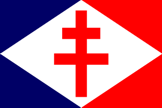
Jack of the FNFL (Forces Navales Françaises Libres), France
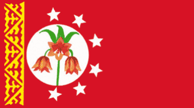
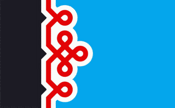
Flag of Batken, Kyrgyzstan (fotw); Flag of the Mulgi people, Estonia)
Notes
a) These are not established terms, but have been introduced by the Editors since no established alternatives could be found.
b) The terms “National Ornament” and “Folklore Ornament” are often synonymous since the former was often adopted from the latter.
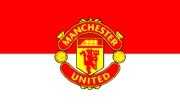
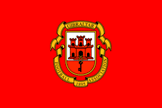
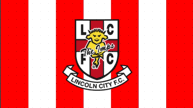
Flag of Manchester United FC, UK;
Flag of the Gibraltar Football Association;
Flag of Lincoln City FC, UK
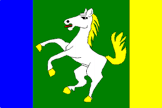

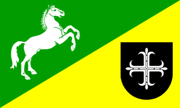
Flag of Lačnov, Czechia;
Flag of Leegebruch, Germany;
Flag of Badendorf, Germany
Please note that in the sailing/steam-assisted navy, the command flag of
a vice-admiral was formerly flown in this position (also ‘balls of difference’, ‘flag of command’
and
‘flagship’).![[at the fore example]](../images/v/vxt-d3594.gif)
Flag of a Vice-Admiral 1864 - 1898, UK
Please note that this term has been introduced by the Editors to avoid any possible confusion with the existing term “hooked cross” – see ‘hooked cross’.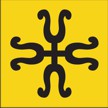

Flag of Affoltern
district, Switzerland,
Flag of Kappel am Albis, Switzerland
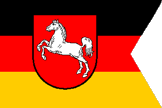
State Ensign of Lower Saxony, Germany (fotw)
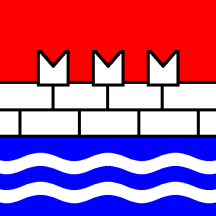
Flag of Carabietta, Switzerland
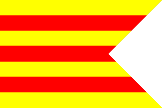
Flag of Galanta, Slovakia
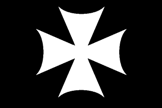
Flag of Vilamacolum, Spain
Notes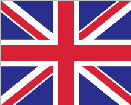
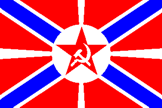
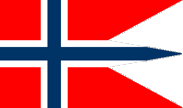
1801 Pattern of Union Jack, UK (Graham Bartram);
Jack/Fortress Flag, Soviet Union 1924 – 1932;
State Flag/Naval Ensign of Norway
a) Some countries use/used ensigns of special design to denote ships belonging to naval fortresses (notably Soviet Union).
b) It is also not unknown for a country to have had sets of rank flags to denote presence of officers of particular rank/position in coastal artillery and fortresses.

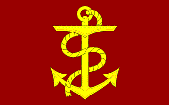

Flag of the Naval Board, Canada;
Flag of the Admiralty Board, UK;
Flag of the Chief of the Navy Board, Australia
Please note that in UK usage the fouled (or foul) anchor is considered a symbol of the Royal Navy, and that officers of the British merchant marine show an anchor (of a slightly differing pattern) without its cable on their cap badges and buttons.
2) In in modern heraldry and in vexillology the (sometimes stylized) pictorial representation of a decorative/architectural device which pours or projects water – a water-pouring, water-gushing or waterspout fountain..
![[fountain example]](../images/v/vxt-d4758.gif)
![[fountain example]](../images/v/vxt-d5457.gif)
![[fountain example]](../images/v/vxt-d5337.gif)
Flag of Carragosa, Portugal;
Flag of Funtana, Croatia;
Flag of Eirado, Portugal
![[Gradient fill example]](../images/v/vxt-d1171.gif)
Flag of the Christlich-Soziale Union, Bavaria, Germany
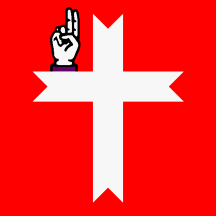
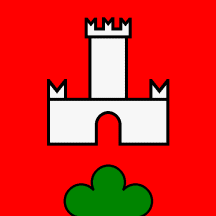
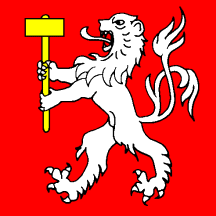
Flag of Faido, Switzerland; Flag of Castel San Pietro, Switzerland;
Flag of Martigny, Switzerland

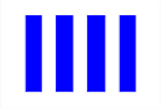
![[fourragère]](../images/v/vxt-d1419.jpg)
![[fourth canton]](../images/v/vxt-d1576d.gif)